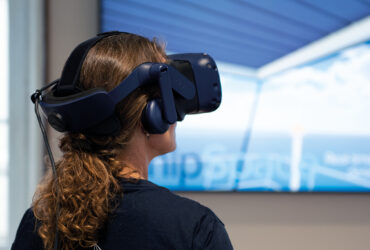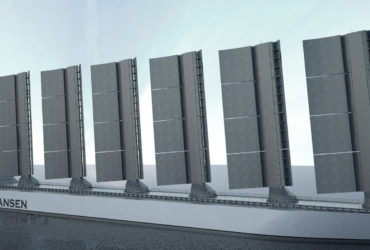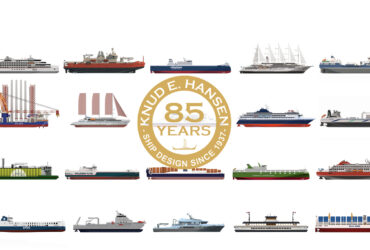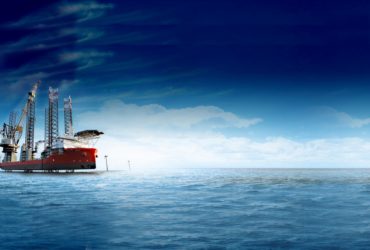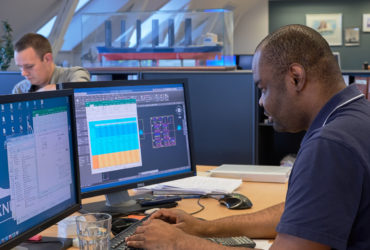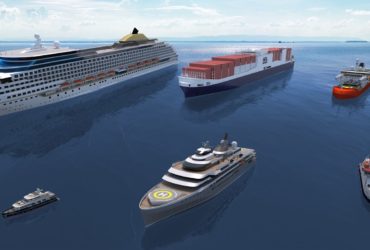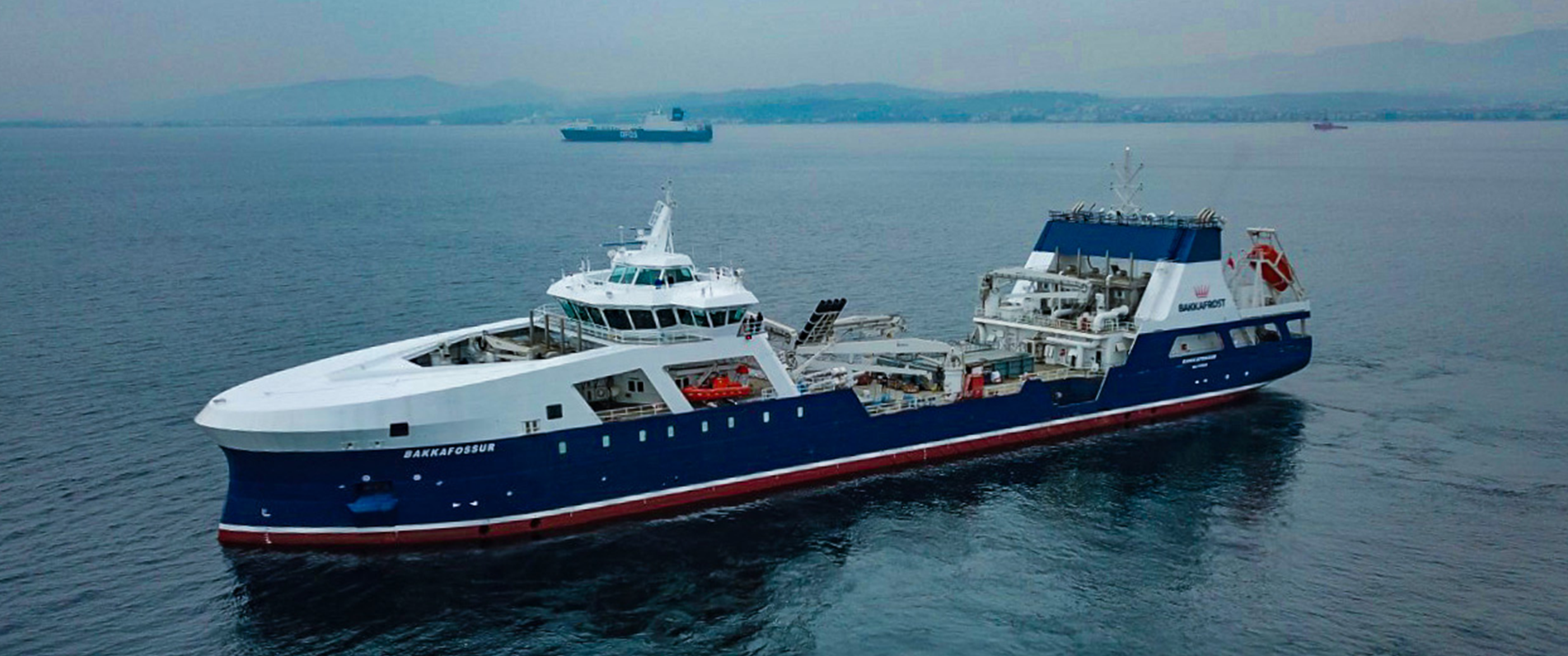AWARD
Baird Maritime Work Boat Award
We are pleased to announce with great pride that our design for the 109-meter BAKKAFOSSUR, one of the most advanced well boats in the global aquaculture industry, has been recognized by Baird Maritime. The vessel has been awarded the Work Boat Award 2023, specifically as the World’s Best Large Well Boat.
This acknowledgment underscores the unwavering commitment and expertise of our design team in contributing to the advancements within the fishing and aquaculture sector. We are honored to receive this award, which serves as a testament to our dedication to excellence in advanced tailormade ship design.
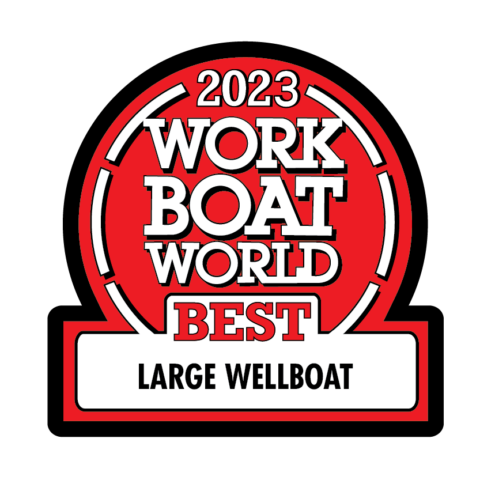
Best Large WellBoat – Bakkafossur
As the global fish farming industry matures it requires larger, more efficient and more seaworthy service vessels to facilitate its inevitable move further offshore. This fine new vessel, from the renowned designers at Denmark’s Knud E.Hansen, illustrate that development perfectly.
Large, at 109 metres LOA, seaworthy and very innovative, Bakkafossur is impressively innovative in many respects from its hybrid propulsion system to its processing and delousing systems. It epitomises almost every aspect of what Baird Maritime believes make it best in its class.
“We spent years developing our live fish carrier concepts taking all aspects of the vessel design into consideration, and this also includes foreseeing the future availability of green fuels,” Marni Olsen, Project Manager and Senor Naval Architect at Knud E. Hansen, told Baird Maritime. “I believe we succeeded in preparing the vessel for future conversion to accommodate green fuels by placing the DE generator set on the shelter-deck where the components can be easily removable. In combination with the large aft deck for additional installations in future, this will keep the complexity and costs of conversions to a minimum.”
Olsen added that by using slow-running asynchronous electrical propulsion motors directly on the shaft instead of a traditional diesel engine with reduction gear, the parts in the propulsion system that can be subjected to wear have been reduced to only a few bearings. Although diesel engines will still constitute the power plant, incorporating five of these will ensure redundancy.
“I would also like to point out the arrangement of the pipe/cable-tunnel running longitudinally on two decks in the centre of the vessel between the two starboard and two port fish tanks. Having the tunnel running between the tanks at full deck height improves access between the fore and aft sections as well as the access to the various pipes and systems for inspection.”
Because the owner decided on operations without separate biomass tanks, the vessel was designed to have a reduced capacity to produce fresh water compared to vessels of similar size. Thus, instead of immediately having to replace all fresh water in the fish tanks when dirty, fresh water is continuously produced partly for replacement of water in the fish tanks. Fewer facilities are needed and less time is consumed for tank cleaning.
“For a ship design to be effective, you have to find a way to incorporate simplicity in otherwise complex arrangements,” added Olsen. “In our case, we had to go through the design cycle repeatedly. I believe we succeeded in this respect in completing the general arrangement and the layout, including overcoming any difficulties in ensuring damage stability for a vessel over 80 metres long and arranging the piping systems.”
Olsen admitted there is still uncertainty regarding the availability of future fuels and related technologies, so Knud E. Hansen instead focuses on alternative fuels and optimisation of fuel consumption.
“We focus on smart designs for future conversions,” Olsen told Baird Maritime. “For vessels that reach 30 years or more of operational service, there will be a need for these to be retrofitted to comply with new regulations, optimise their capacities and operational performance, and increase their versatility in addition to extending their respective service lives.”
The use of diesel-electric propulsion with battery packs is one option offered by Knud E. Hansen when designing hybrid propulsion systems that can be easily converted at a later time to accommodate alternative fuels.
Olsen said noise damping has also become an important requirement among customers. As new regulations on the damping of both above water and underwater noise are being ratified, a growing number of shipowners are also including the reduction of noise levels in their requirements.
“Like everyone else, we have seen some drastic changes in markets in recent years due to Covid-19 along with changes in global economies and the geopolitical situation in general,” added Olsen. “Fortunately, we are not dependent on only one segment of vessel design, instead specialising in various types of vessel design and engineering for the maritime industry.”
To highlight this expansion, Olsen mentioned the company’s growing focus on ship design projects for customers in the naval, research, Ro-Ro/car carrier, Ro-Pax ferry, offshore wind, and fishing and aquaculture sectors.
“The fishing and fish farming industry is important to us, and so we look forward to many years to providing whatever support we can to this industry,” said Olsen. “We have also been seeing the growing demand of consumers for sustainability labels in fishery and aquaculture products over the last decades. There is a growing interest from consumers to widen the sustainability concept to include the social and ethical impact of the fishery and fish farming industries. We are working to address this requirement to allow our customers to better serve end users’ needs now and in the future.”
Olsen said that, although Knud E. Hansen is capable of delivering tailor-made designs for various types and sizes of specialised vessels, there are trends that have been driving Denmark’s domestic workboat industry.
“We are seeing growing interest in all kinds of both ‘green and grey’ designs,” Olsen told Baird Maritime. “The ‘green’ refers to designs and technological developments that support decarbonisation, alternative fuels, and power-to-X infrastructure, while ‘grey’ refers to the increasing national priority of strengthening naval capacity through the introduction of small- and medium-sized workboats and dual-use vessels. We are also seeing growing demand for autonomous vessels of various types, which can also include ferries and submersibles.”
Source: Baird Maritime
Photo: Faroephoto.fo
Gallery



Faroephoto.fo Ⓒ

Faroephoto.fo Ⓒ

Faroephoto.fo Ⓒ






